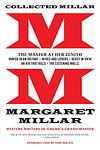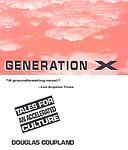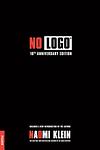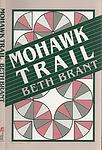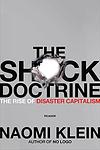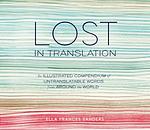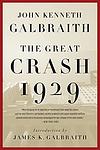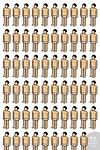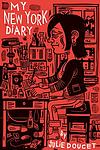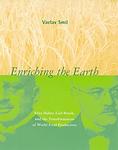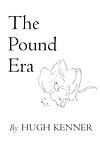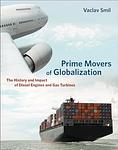The Greatest Canadian "United States" Books of All Time
Click to learn how this list is calculated.
This list represents a comprehensive and trusted collection of the greatest books. Developed through a specialized algorithm, it brings together 300 'best of' book lists to form a definitive guide to the world's most acclaimed books. For those interested in how these books are chosen, additional details can be found on the rankings page.
Genres
The "United States" category for books encompasses literature that is set in or explores the history, culture, and society of the United States. This includes works of fiction, non-fiction, and memoirs that focus on American life, politics, and social issues. Books in this category may cover a wide range of topics, from the founding of the nation to contemporary issues such as race, gender, and immigration. The United States category is a broad and diverse genre that reflects the rich and complex history of the country.
Countries
Date Range
Reading Statistics
Click the button below to see how many of these books you've read!
Download
If you're interested in downloading this list as a CSV file for use in a spreadsheet application, you can easily do so by clicking the button below. Please note that to ensure a manageable file size and faster download, the CSV will include details for only the first 500 books.
Download-
1. Beast In View by Margaret Millar
"Beast In View" by Margaret Millar is a gripping psychological thriller that follows the story of Helen Clarvoe, a troubled woman who becomes entangled in a web of deception and manipulation. When Helen receives a series of disturbing phone calls from an unknown caller, she becomes convinced that someone is out to destroy her life. As she desperately tries to uncover the identity of her tormentor, Helen finds herself questioning her own sanity and unraveling dark secrets from her past. With its intricate plot and complex characters, this suspenseful novel explores themes of obsession, betrayal, and the fragile nature of the human mind.
-
2. The Great Transformation by Karl Polanyi
The book in question is a seminal work in economic and social history that examines the development and impact of the modern market economy on global societies. It argues that the rise of market capitalism in the 19th century fundamentally transformed social structures and human relationships, with the commodification of land, labor, and money turning them into tradable goods. This transformation led to social dislocation and crises, prompting a counter-movement for social protection and the rise of the welfare state. The author challenges the idea that the market economy is a natural and inevitable form of social organization, instead presenting it as a constructed system with profound effects on the fabric of society.
-
3. By Grand Central Station I Sat Down And Wept by Elizabeth Smart
The book is a lyrical and intense prose-poem that delves into the depths of the narrator's passionate affair with a married man. It explores the tumultuous emotions of love, jealousy, and despair that accompany an illicit relationship. The narrative is rich with biblical and literary allusions, reflecting the protagonist's internal struggle to reconcile her overwhelming feelings with the moral and societal constraints of her time. The work is known for its poetic language and its raw, honest portrayal of the complexities of love and desire.
-
4. Station Eleven by Emily St John Mandel
"Station Eleven" is a post-apocalyptic novel that revolves around the lives of several characters before and after a devastating flu pandemic wipes out most of the world's population. The narrative jumps back and forth in time, exploring the interconnectedness of the characters' lives through their shared memories and experiences. The story also follows a traveling Shakespearean theatre company as they navigate the dangers of a collapsed civilization, emphasizing the importance of art and human connection in times of crisis.
-
5. Generation X by Douglas Coupland
The book is a novel that captures the disaffections of young adults growing up in the late 20th century, specifically those born in the late 1950s to the early 1980s. It follows the lives of three friends who have retreated to the California desert to escape the complexities and frustrations of the modern world. Through their stories, the novel explores themes of aimlessness, consumer culture, and the search for authenticity in a society saturated with media and technology. The characters' tales are interspersed with quirky definitions and cartoons that reflect their cynical, yet deeply yearning outlook on life, coining terms and concepts that resonate with a generation struggling to find its identity amidst economic and social uncertainty.
-
6. No Logo by Naomi Klein
This book explores the negative effects of corporate branding and globalization. It critiques the marketing strategies of large corporations, arguing that they exploit workers and manipulate consumers. The author also discusses how these corporations have a significant influence on culture and public space. The book suggests that consumer activism and grassroots movements can serve as effective counter-forces to corporate power.
-
7. The Medium Is The Massage by Marshall McLuhan
"The Medium Is The Massage" explores how media, more than the content it carries, influences and shapes human perception and society. The book argues that each medium, independent of content, creates a new environment that alters our sensory balance and social dynamics. It emphasizes that the medium through which we receive information—be it print, television, or radio—plays a crucial role in shaping our experiences and understanding of the world. The work is a seminal exploration of media theory, famously coining the phrase "the medium is the message," to highlight the profound impact of the medium itself over the content delivered through it.
-
8. Outliers by Malcolm Gladwell
The book examines the factors that contribute to high levels of success. Through a compilation of anecdotes and analyses of various cultural phenomena, it argues that success is not simply a result of individual talent or intelligence, but rather the result of a combination of opportunities, hidden advantages, cultural legacies, and the amount of time spent practicing a specific task. The author challenges the traditional notion of the "self-made" individual by emphasizing the importance of external influences and timing, such as being born in a certain era or having access to specific resources, in shaping one's ability to achieve extraordinary accomplishments.
-
9. Weeds by Edith Summers Kelley
The novel explores the life of a strong-willed woman named Judith, who is trapped in a stifling marriage and struggles to maintain her individuality and spirit amidst the hardships of rural Kentucky life in the early 20th century. As she toils on a tobacco farm with her husband and children, Judith grapples with the societal expectations placed upon her and the limited opportunities available to women of her time. The narrative delves into themes of feminism, poverty, and the human connection to the land, painting a vivid portrait of the challenges faced by women seeking autonomy in a patriarchal society.
-
10. Mohawk Trail by Beth Brant
"Mohawk Trail" is a poignant collection of stories and essays that delve into the lives and experiences of Native Americans, particularly focusing on the Mohawk community and other indigenous peoples. The narrative weaves together themes of identity, culture, and the struggles of living in a world where traditional ways are often at odds with modern society. Through a blend of personal reflection, historical accounts, and rich storytelling, the book offers a window into the resilience and complexities of Native American life, exploring the intersection of past and present, and the journey towards self-discovery and cultural preservation amidst the challenges of displacement and assimilation.
-
11. The Shock Doctrine: The Rise of Disaster Capitalism by Naomi Klein
This book explores the concept of "disaster capitalism", the idea that global capitalism thrives on disaster and chaos. The author argues that free market policies are often pushed through while countries are reeling from wars, natural disasters, or economic crises. She provides a historical analysis of these events, from Chile in the 1970s, to Russia in the 1990s, to the war in Iraq, demonstrating how governments and corporations exploit these periods of shock to implement economic reforms that would otherwise be rejected.
-
12. Lost In Translation by Eva Hoffman
"Lost in Translation" is a memoir that explores the profound complexities of identity and language through the lens of a young girl's emigration from Poland to Canada and then to the United States. The narrative delves into the emotional and psychological challenges of adapting to new cultures, the sense of displacement, and the search for belonging. It poignantly captures the experience of losing one's homeland and the struggle to assimilate while maintaining a connection to one's roots. The author reflects on the nuances of language and the deep connection between language and self, offering insights into the immigrant experience and the transformative power of embracing multiple worlds.
-
13. The Great Crash, 1929 by John Kenneth Galbraith
The book provides a detailed analysis of the economic factors and decisions that led to the Wall Street crash of 1929, which precipitated the Great Depression. It examines the speculative bubble that grew in the preceding years, driven by overly optimistic investments in the stock market, and the lack of regulation that allowed for rampant financial speculation. The author delves into the aftermath of the crash, exploring its profound effects on the economy and society, and critiques the responses of financial and political leaders. The narrative serves as both a historical account and a cautionary tale about the dangers of financial excess and the importance of regulatory oversight.
-
14. Sailing Alone Around the World by Joshua Slocum
"Sailing Alone Around the World" is a captivating memoir of a man's solo journey around the globe in a small boat. The narrative details the author's adventures and challenges as he navigates the high seas, encounters different cultures, and grapples with the solitude of his journey. The book stands as a testament to human resilience and the lure of adventure, providing a detailed account of maritime travel in the late 19th century.
-
15. Microserfs by Douglas Coupland
This novel is a captivating exploration of the lives of a group of young tech workers in the 1990s, initially employed by a major software company in Silicon Valley, before venturing out to start their own company. Through the format of diary entries, the narrative delves into the personal and professional challenges they face, set against the backdrop of the rapidly evolving tech industry. The story offers a poignant look at the search for meaning amidst the bits and bytes of the digital age, touching on themes of friendship, love, and the quest for identity in a world dominated by technology.
-
16. My New York Diary by Julie Doucet
This graphic novel offers a raw and unflinching autobiographical account of a young woman's experiences when she moves to New York City. Through a series of vivid, often gritty, comic strips, the narrative delves into her struggles with relationships, her aspirations as an artist, and her battles with personal demons. The protagonist's journey is marked by moments of intense vulnerability, creativity, and self-discovery, set against the chaotic backdrop of urban life. The artwork, characterized by its detailed and expressive style, complements the emotional depth of the story, making it a compelling exploration of youth, ambition, and the search for identity.
-
17. Washington Black by Esi Edugyan
"Washington Black" is a historical novel by Esi Edugyan that tells the story of a young slave named George Washington Black, who is forced to flee a plantation in Barbados with the help of his master's brother. The two embark on a journey that takes them across the globe, from the Caribbean to the Arctic, and Washington Black discovers his talent for scientific illustration. Along the way, he faces challenges and struggles with his identity as a black man in a world dominated by white men. The novel explores themes of freedom, identity, and the impact of colonialism on individuals and societies.
-
18. The Warrior's Honor: Ethnic War and the Modern Conscience by Michael Ignatieff
The book explores the moral and ethical challenges faced by modern societies when confronted with ethnic conflicts and wars. It delves into the complexities of humanitarian intervention, the role of the media in shaping public perception, and the struggle to reconcile the principles of human rights with the brutal realities of ethnic violence. Through a series of case studies and philosophical reflections, the author examines the tension between the universal claims of morality and the particular loyalties of kinship and nationality, questioning the capacity of moral conscience to mediate in conflicts where deep-seated cultural and ethnic animosities are at play.
-
19. Enriching The Earth by Vaclav Smil
This book provides a comprehensive exploration of the pivotal role that the Haber-Bosch process has played in transforming agriculture and supporting global population growth. By synthesizing ammonia from nitrogen and hydrogen, this technological innovation enabled the mass production of fertilizers, significantly boosting crop yields and thus, food supply. The narrative delves into the scientific, historical, and environmental aspects of this revolution, examining both its monumental contributions to human society and the challenges it poses, including resource depletion and environmental degradation. Through a detailed analysis, the work underscores the delicate balance between technological advancement and sustainable development.
-
20. Energy At The Crossroads by Vaclav Smil
This book provides a comprehensive analysis of global energy challenges, focusing on the transition from traditional fossil fuels to more sustainable energy sources. It delves into the historical context of energy consumption, the environmental impacts of current energy use, and the technological, economic, and social hurdles that need to be overcome to shift towards renewable energy. The author critically examines the feasibility of various alternative energy sources, including solar, wind, and nuclear power, and emphasizes the importance of energy efficiency. Through a detailed and realistic assessment, the book presents a nuanced perspective on the complex interplay between energy, environment, and society, urging for a more informed and strategic approach to energy policy and innovation.
-
21. Journal of the Voyage to the Pacific by Alexander Mackenzie
"Journal of the Voyage to the Pacific" is a travelogue that documents the author's journey from Great Slave Lake in Northwest Territories, Canada, to the Pacific Ocean. The author, an explorer, details the challenges and experiences he encountered during the first recorded transcontinental crossing of North America north of Mexico. The book provides an insightful view into the landscapes, indigenous cultures, and natural history of the late 18th century North American continent.
-
22. The Pound Era by Hugh Kenner
"The Pound Era" is a critical exploration of the early 20th century through the lens of Ezra Pound's influence on modernist literature and art. The book delves into Pound's relationships with key figures of the time, such as T.S. Eliot, James Joyce, and Wyndham Lewis, and examines how his ideas and innovations in poetry and criticism shaped the movements and aesthetics of the era. The narrative not only highlights Pound's literary contributions but also contextualizes them within the broader cultural and historical shifts of the period, offering insights into the complexities of modernism and its enduring impact on contemporary literature.
-
23. Why America Is Not A New Rome by Vaclav Smil
This book presents a detailed comparison between the United States and ancient Rome, debunking the popular notion that America is following the same trajectory as the Roman Empire towards decline and fall. The author meticulously examines various dimensions including military power, political systems, social structures, and economic dynamics to highlight the fundamental differences between the two entities. Through a rigorous analysis, it is argued that simplistic analogies between Rome and the United States overlook significant dissimilarities, particularly in terms of resilience, adaptability, and global influence, ultimately making the case that America's path is distinct from that of ancient Rome.
-
24. Prime Movers Of Globalization by Vaclav Smil
This book provides a comprehensive analysis of the technological innovations and energy systems that have been pivotal in driving globalization from the mid-19th century to the present day. It focuses on the development and impact of diesel engines, gas turbines, and the containerization of cargo, illustrating how these innovations have significantly increased the efficiency, speed, and scale of global trade and transportation. The narrative underscores the critical role of energy transitions in facilitating economic growth and interconnectivity across continents, while also considering the environmental and geopolitical implications of our reliance on fossil fuels and the urgent need for sustainable alternatives. Through a detailed examination of technological advancements, the work offers insights into the complex dynamics that have shaped the modern globalized world.
-
25. Home: A Short History Of An Idea by Witold Rybczynski
"Home: A Short History of an Idea" explores the evolution of the concept of home from medieval times to the modern day, examining how domestic comfort and the idea of privacy have developed over the centuries. The book delves into architectural, cultural, and social changes, illustrating how homes have transformed from mere shelters to places of comfort and personal expression. Through an analysis of various elements such as lighting, heating, and interior design, the author provides insights into how the notion of what makes a house a home has shifted, reflecting broader changes in society and individual expectations.
Reading Statistics
Click the button below to see how many of these books you've read!
Download
If you're interested in downloading this list as a CSV file for use in a spreadsheet application, you can easily do so by clicking the button below. Please note that to ensure a manageable file size and faster download, the CSV will include details for only the first 500 books.
Download